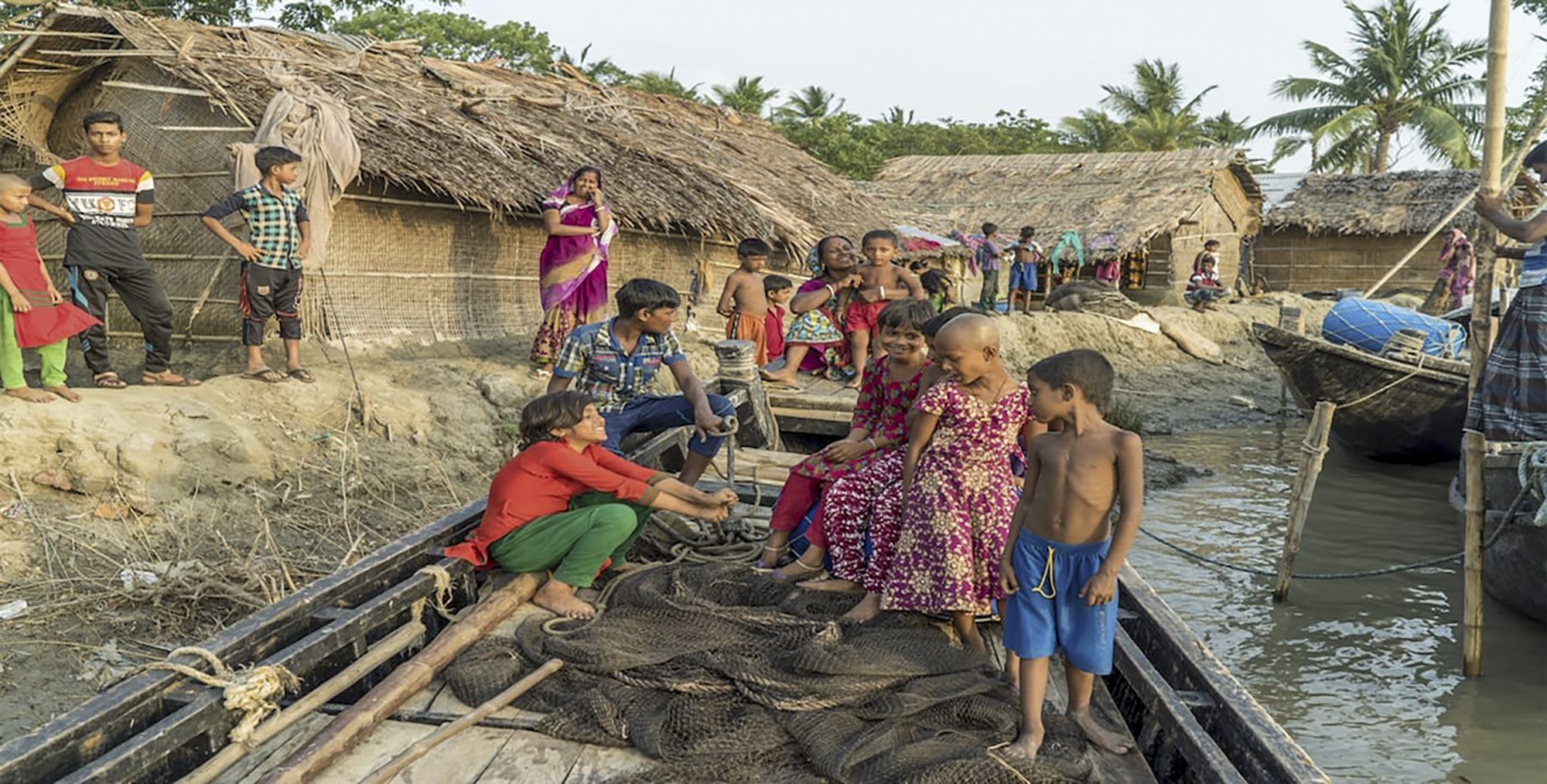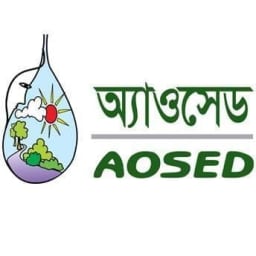
AOSED-An Organization for Socio-Economic Development is a non-government and non-profit development organization founded in 1999. It is committed to conserving the environment, ecology, biodiversity. AOSED also seeks to improve the standard of living and livelihoods of vulnerable communities in the Southwest Coastal Region of Bangladesh through equipping people with knowledge and tools to face the challenges being created by Climate Change and ensuring their access to natural and common resources. Throughout the years, AOSED has worked on Water Justice, Food security and agriculture, Environment & Climate Change, Health & Hygiene, Disaster Management issues through implementing different projects, programs and social action research with the cooperation of various level of national, international development agencies and research and educational institutions.
Khulna city, located in the coastal belt of Bangladesh, is one of the most vulnerable areas to climate change. Rivers near the Khulna city have already been affected by salinity intrusion, and the global sea level rise is expected to exacerbate the challenges of salinity intrusion. Inland flooding is also widespread in Khulna and projected to worsen due to climate change. The urban infrastructure and services need to adapt to these threats urgently and adequately. The number of slums has significantly increased in Bangladesh over the last three decades along with the expansion of cities and towns. Rapid urbanization, caused largely by heavy influx of migrants from rural areas, has exerted severe pressure on urban housing and public services in the metropolitan city of Khulna with which the expansion of infrastructure and basic urban services could not cope. This situation coupled with the destitute economic condition of poor migrants has given rise to the formation of a large number of slums where service inadequacies have been compounded and multiplied on a massive scale, resulting in hazardous environmental condition. In past, water distribution points were established in slum areas. But due to lack of maintenance and proper management, the water points did not sustain.
Tube wells are the main source of drinking water in the slums. In most of the slums of Khulna City Corporation area, there are on an average 1 tube well for 1,000 slum dwellers. Women are primarily responsible to collect drinking water for their families. Sometimes, they have to walk 1.5 to 3 kilometers to fetch drinking water. Not only for drinking purpose, water required for other purposes such as washing, bathing etc. is fetched from shallow tube well located in the proximity, which is contaminated by arsenic, increasing the health risk of the users. Due to this, there is a long queue to collect water, where sometimes young girls reported facing gender-based harassment. Due to shortages of water sources, people of this area have to use the canal for washing clothes, utensils etc. which is already polluted and contaminated with pathogens and toxins from the industries and hanging toilets. Most of the slum dwellers cannot afford to buy bottled water for drinking purpose.
This project will seek to address the drinking water scarcity in the selected slum of Khulna City Corporation area while ensuring its sustainability through a ‘Community-based maintenance and management mechanism’. Reverse Osmosis (RO) technology will be used in the water distribution point where no ground water will be extracted for purification. A total of 04 RO-based water treatment and distribution plants will be installed which will serve around 1600 families living in slum areas. The reducing groundwater level in Khulna City is concerning. Keeping that in mind, surface water from nearby Rupsa River will be extracted for purifying rather than extracting the ground water.
For each distribution point, there will be a Maintenance and Management Committee comprising 8-10 community people. As the name suggests, the committee will be responsible for overall maintenance and management of the plant including paying salary of the caretaker, changing filters/membranes of the RO plant, collecting money from the sale of water and depositing it in a separate bank account. Slum Dwellers will pay a minimum amount for collecting drinking water (approximately USD 0.0098/liter) which will be expensed for paying salary of the caretakers, and other maintenance. Through this, the cash flow will be ensured which will help the distribution plants to sustain.
How you can contribute: USD 320,000 is the approximate annual budget of the project for Household survey, construction, installation of reverse osmosis plants, maintenance, salary, project audit, bank charge.
Fundraisers
Become a supporter!
Donate or start a fundraiser
